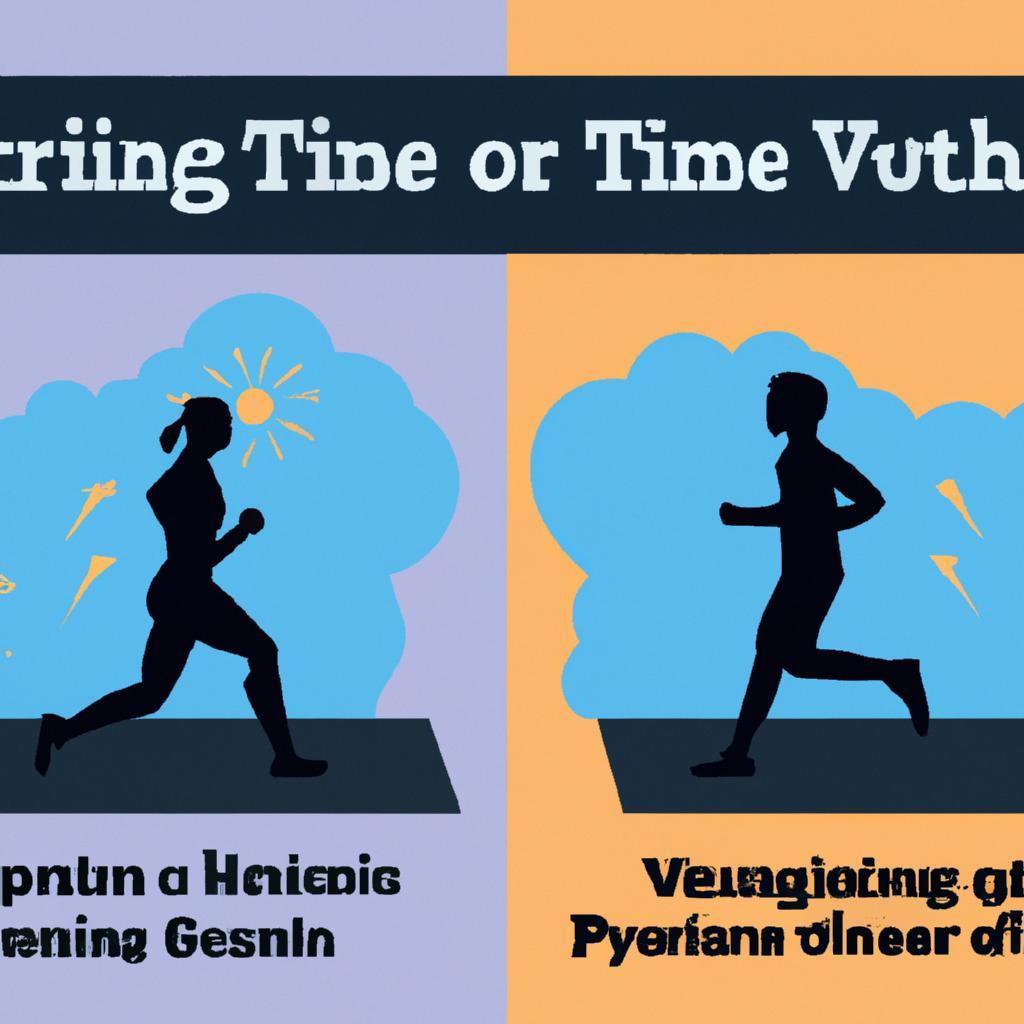As the sun breaks over the horizon or gently dips below the horizon’s embrace, runners lace up their shoes, ready to hit the pavement. The age-old debate between morning and evening runs has sparked fervent discussions among fitness enthusiasts and casual joggers alike. Is there something magical about the stillness of dawn, when the world is waking up and the air is crisp? Or does the tranquil rhythm of dusk offer a perfect backdrop for unwinding after a busy day? Each time of day presents its own unique benefits and challenges, and understanding these nuances can help you tailor your running routine to better suit your fitness goals and personal lifestyle. In this article, we will delve into the pros and cons of morning versus evening runs, exploring the science behind body rhythms, the impact of environment, and how your personal preferences might just hold the key to your most rewarding running experience. Whether you’re an early bird or a night owl, it’s time to unravel the best time for you to hit the pavement for fitness.
Morning Motivation and Evening Energy: Choosing Your Perfect Run Time
The choice between morning and evening runs often comes down to personal preference and lifestyle, but each has its own unique benefits. **Morning runs** can set a positive tone for the day, providing an energy boost that enhances focus and productivity. They allow you to enjoy serene, less crowded streets and invigorating fresh air, making it an ideal time to reflect or listen to your favorite podcast. On the other hand, **evening runs** are perfect for those who may not be morning people or have busy schedules. As the day winds down, running can serve as a form of stress relief, allowing you to unwind while reconnecting with your body and surroundings. The temperatures are often cooler, and the vibrant colors of the sunset create a picturesque backdrop for your run. Consider the following factors when deciding on your ideal running time:
- Energy Levels: Are you a natural early bird or a night owl?
- Schedule: Do you have commitments that narrow down your options?
- Goals: Are you training for a specific event or just running for health?
- Environment: Consider the weather, crowds, and safety depending on the time.
| Time of Day | Pros | Cons |
|---|---|---|
| Morning |
|
|
| Evening |
|
|

Maximizing Performance and Recovery: Insights into Your Ideal Running Schedule
Understanding the nuances of your body’s performance and recovery is essential for optimizing your running regimen. Consider the following key factors to help you determine your perfect running schedule:
- Body Temperature: Morning runners often experience a lower body temperature, while evenings provide a warmer climate, aiding muscle flexibility.
- Energy Levels: Depending on your circadian rhythms, you might find peak energy levels in the morning or late in the day.
- Hormonal Fluctuations: Cortisol, which promotes alertness, peaks in the morning, while testosterone, beneficial for muscle recovery, is typically higher later in the day.
- Consistency: Consider your daily commitments. Are you more likely to stick to your schedule in the morning or in the evening?
Additionally, the following table compares various aspects of morning and evening runs to help guide your decision:
| Aspect | Morning Runs | Evening Runs |
|---|---|---|
| Temperature | Cooler | Warmer |
| Mental Clarity | Boosts focus for the day | Relieves stress after work |
| Sleep Impact | May improve overall sleep | Can disrupt sleep if too late |
| Social Opportunities | Fewer running partners | More group runs possible |
Ultimately, the best time for you to run hinges on a combination of personal preference, lifestyle, and how your body responds throughout the day. Listening to your body’s signals can lead to more effective workouts and improved recovery.
Key Takeaways
In the grand tapestry of fitness, the choice between morning and evening runs resembles a thread woven with personal preference and lifestyle. As we have journeyed through the benefits and considerations of both time slots, it becomes evident that there is no one-size-fits-all answer. Morning runs may offer a serene start to the day, infusing you with energy and mental clarity, while evening runs provide a chance to unwind and reflect on the day’s events under the setting sun.
Ultimately, the best time to lace up your running shoes and hit the pavement hinges on your individual rhythm, schedule, and goals. Whether you find solace in the dawn’s embrace or thrive in the twilight haze, remember that the most important aspect of your running routine is consistency. So choose the time that feels right for you, and embrace the journey ahead. After all, every step you take—be it at sunrise or under the evening stars—brings you closer to your fitness aspirations. Happy running!











Leave a Reply